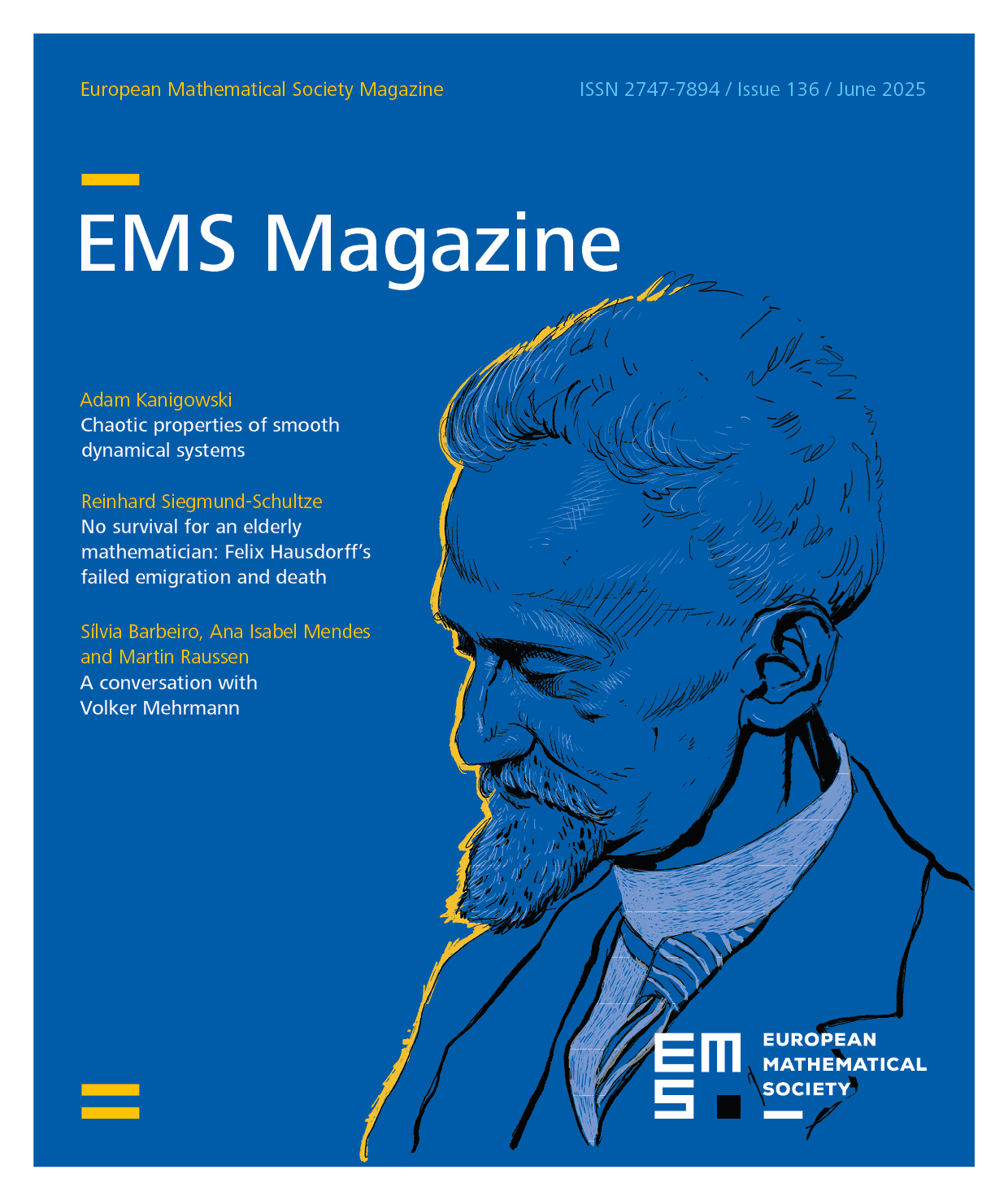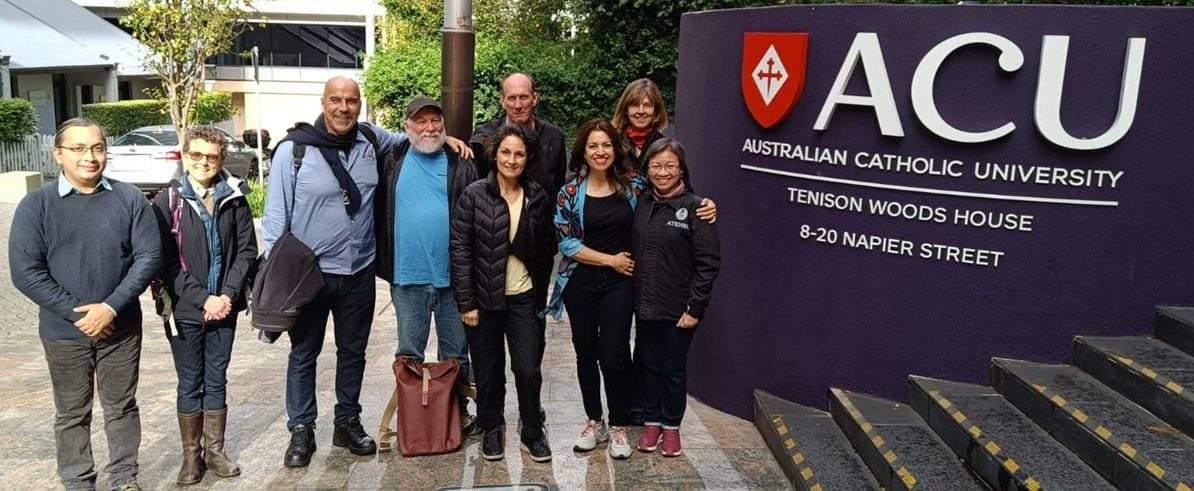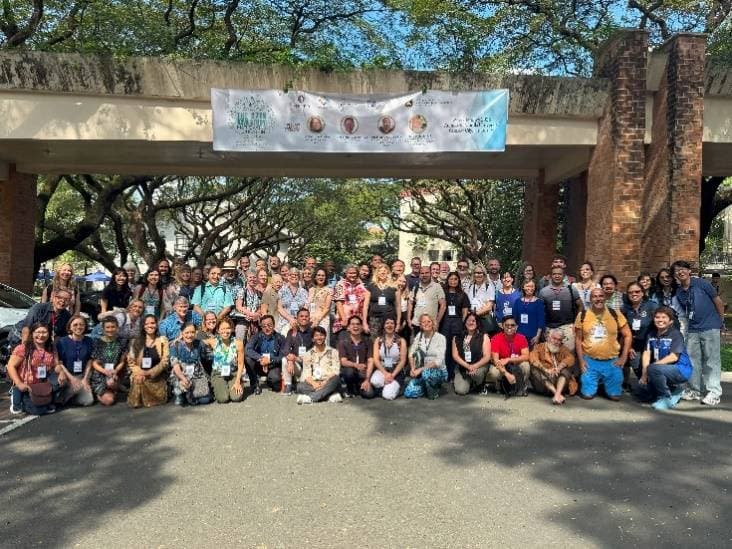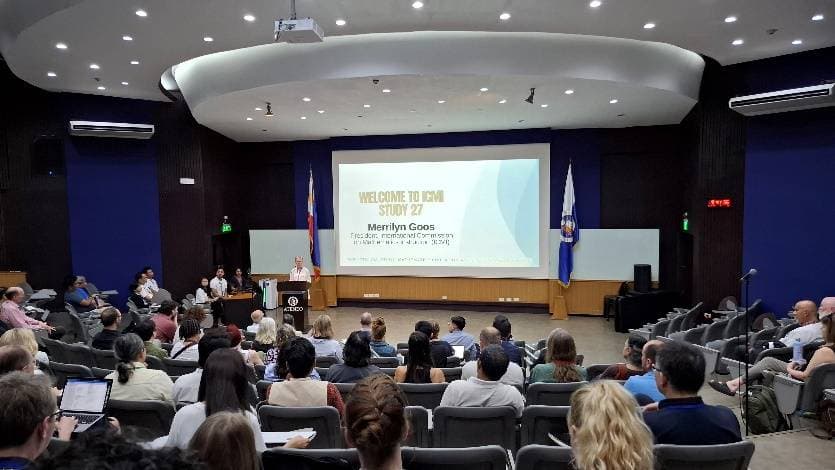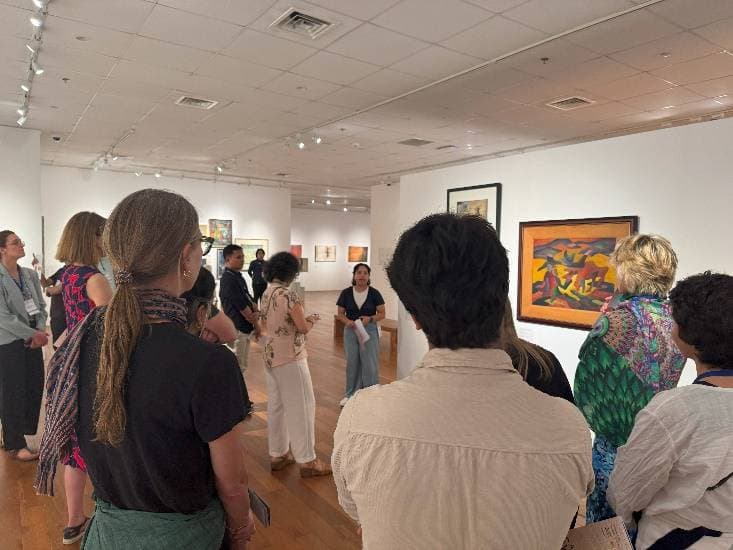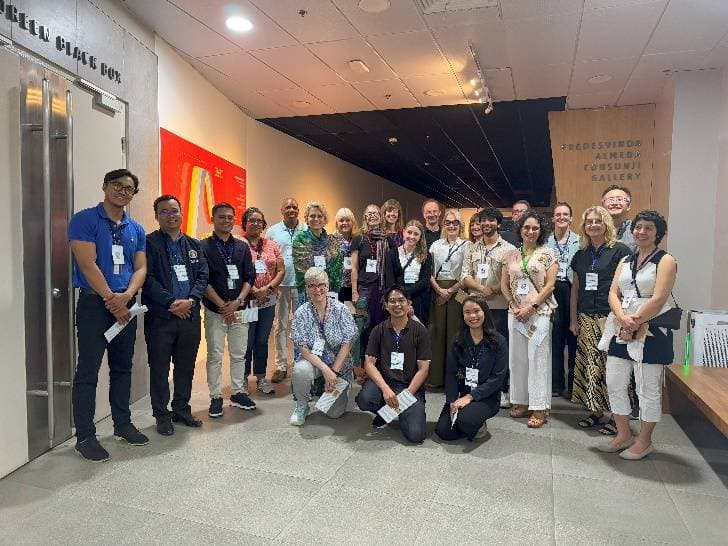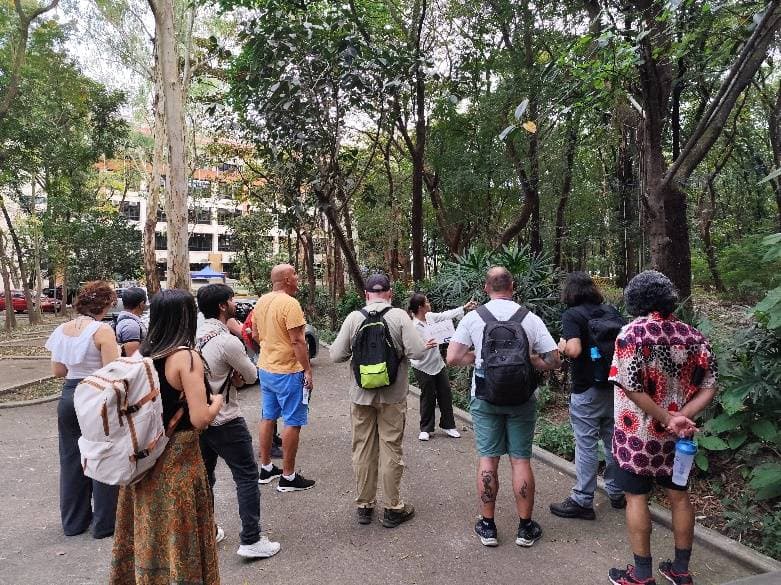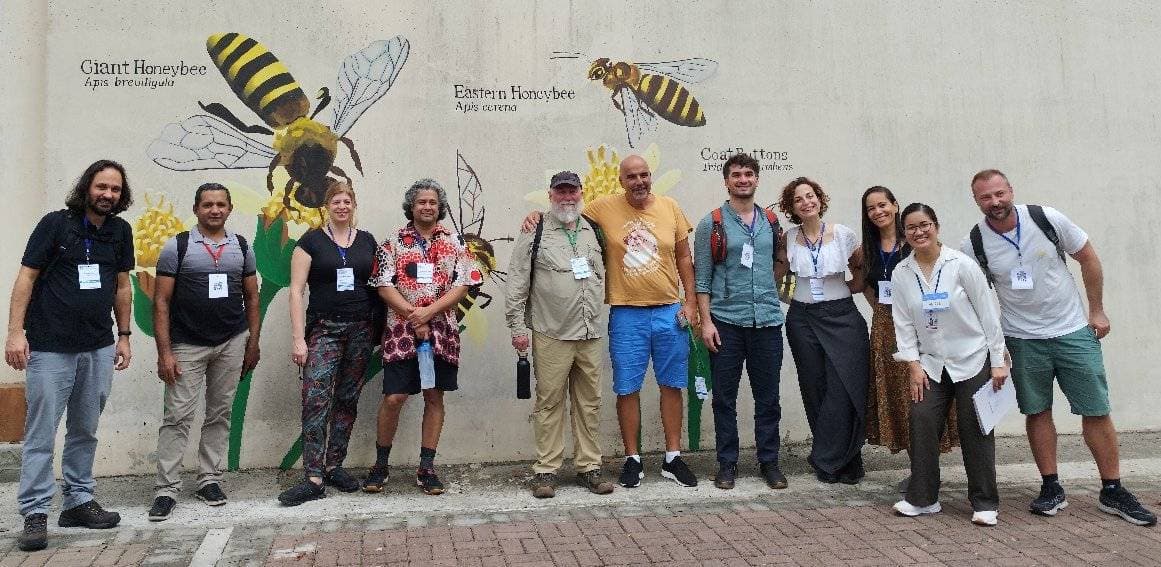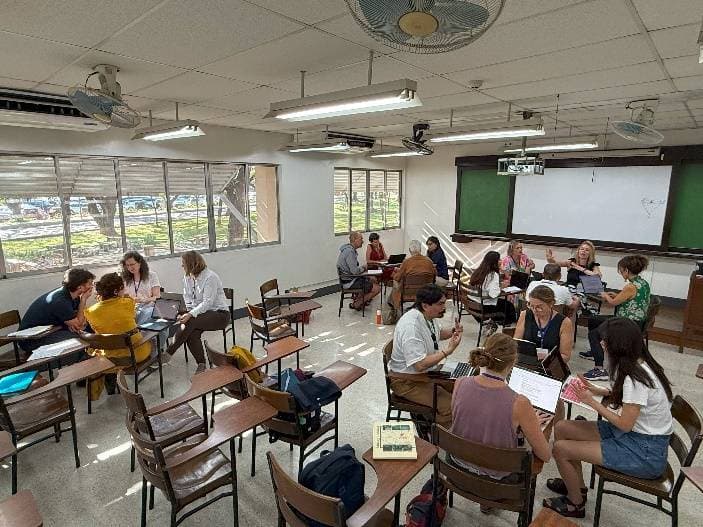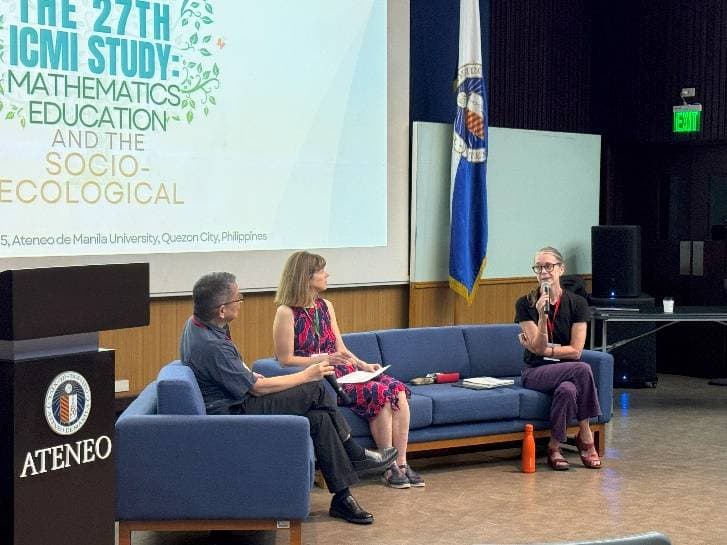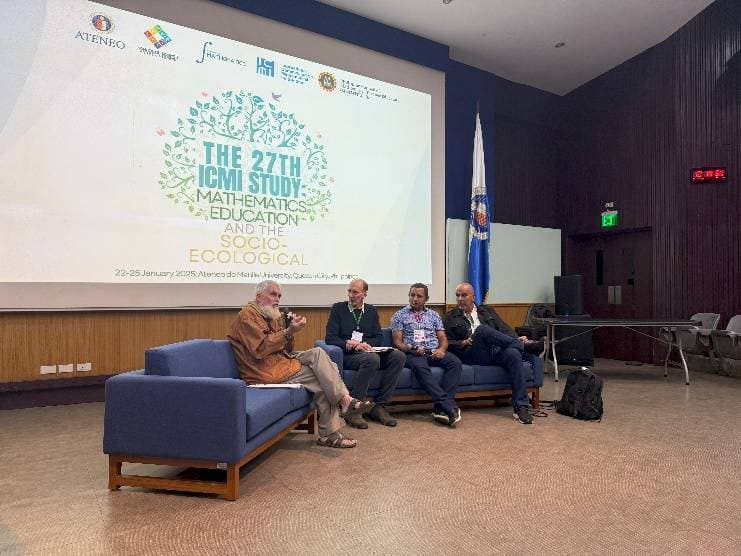The roots of ICMI Study 27: Mathematics Education and the Socio-Ecological
As a named topic in international mathematics education forums, “Mathematics Education and the Socio-Ecological” is relatively new compared to many other topics in the field. Yet there is wide recognition of the urgent need for thought leadership to consider what is and might be the role of mathematics and mathematics education in multiple, intersecting, social, political, ecological, and economic issues such as climate change, poverty, inequality, health crises, discrimination, and marginalisation. Attention to this concern from within mathematics education is not new and has commonly drawn resources for research and practice from traditions such as critical mathematics education, decoloniality, ethnomathematics, feminist and new materialist thought, indigenous ways of knowing, and mathematical modelling (see [2 A. Coles, K. le Roux, M. Borba, A. Bose, V. Geiger, R. Gutiérrez, M. Makramalla, A. Solares-Rojas, N. Sinclair, P. Valero, C. P. Vistro-Yu, F. K. S. Leung and J.-L. Dorier, The 27th ICMI Study (Mathematics education and the socio-ecological): Discussion Document. ICMI (2024) https://icmistudy27.sciencesconf.org/data/pages/ICMI_Study_27_Discussion_Document_with_Addendum_April_2024.pdf] for a fuller description and acknowledgement of these traditions). These empirical and theoretical contributions, in their diversity, have only recently been brought into conversation together and with more established topics of mathematics education such as curriculum, teacher education, technology (for example, in journal special issues and conference discussion groups), towards overarching questions about both mathematics education and the entanglement suggested by the hyphenation in the term socio-ecological.
This growing move in mathematics education internationally was well illustrated when, prompted by the Executive Committee of the International Commission on Mathematics Instruction (ICMI), on March 20 (GMT) we collaborated with a group of scholars to host a one-day online symposium entitled “Mathematics Education and the Socio-Ecological” [7 K. le Roux and A. Coles, Report on the ICMI Symposium on: Mathematics Education and the Socio-Ecological. In ICMI Newsletter, June (2023) https://www.mathunion.org/icmi/icmi-newsletter-june-2023#on-page-4]. The organising team included: Kate le Roux, Alf Coles, Richard Barwell, Marcelo Borba, Anna Chronaki, Rochelle Gutiérrez, Lauren Hennessy, Mariam Makramalla, Aldo Parra, Milton Rosa, Armando Solares-Rojas and Jayasree Subramanian. This was the first such event for ICMI. Running over a full 10 hours to cater for different time zones, it brought together 170 people: mathematics education researchers (established and early career), mathematics teachers, mathematicians, and scientists from other disciplines. Some participants attended for the full time. There were 40 presentations from 18 countries, as well as one plenary presentation and two plenary panels.1See the programme: https://www.mathunion.org/fileadmin/ICMI/Conferences/Socio%20Ecological/ICMI_Symposium-announcement.pdf. Abstracts are represented in the Symposium Proceedings [6 A. Coles, K. le Roux, R. Barwell, M. Borba, A. Chronaki, R. Gutiérrez, M. Makramalla, A. Parra, M. Rosa, A. Solares-Rojas, J. Subramanian and L. Hennessy, Mathematics education and the socio-ecological: ICMI symposium 20th March 2023. (2023) https://www.mathunion.org/fileadmin/ICMI/Conferences/Socio%20Ecological/Porceedings-ICMI-symposium-20th-march-2023.pdf].
Conceptualisation of ICMI Study 27
ICMI Study 27, “Mathematics Education and the Socio-Ecological,” announced in September 2023, builds on this interest, commitment and energy, from a range of contexts. As with all ICMI Studies, the task of participants is to analyse and describe the research and practice on the topic to date, and to harness such contributions towards anticipating new possibilities. The latter requires building community (including interdisciplinary relations) towards new directions in mathematics education, as it relates to the socio-ecological across local and international levels. An ICMI Study is marked by three key events: the publication of a Discussion Document and Call for Participation; a Study Conference (with published, peer-reviewed Proceedings); culminating in the publication of a Study Volume, published open access by Springer as part of the New ICMI Study Series.2https://www.springer.com/series/6351
The ICMI Study 27 process is led by a 13-member International Programme Committee (IPC). This comprises 11 scholars, selected by the ICMI Executive Committee, who have been working in this topic area and who come from a variety of theoretical backgrounds and geographic areas. In addition, two ex-officio ICMI Executive Committee members have provided clear guidance to the team, based on extensive experience of the ICMI Study process, while also allowing us to give meaning to this specific Study, on a relatively new topic. These are the members:
Alf Coles (United Kingdom), co-chair
Kate le Roux (South Africa), co-chair
Marcelo Borba (Brazil)
Arindam Bose (India)
Vince Geiger (Australia)
Rochelle Gutiérrez (United States of America)
Mariam Makramalla (Egypt)
Nathalie Sinclair (Canada)
Armando Solares-Rojas (Mexico)
Paola Valero (Sweden)
Catherine Vistro-Yu (Philippines)
Frederick Leung (Hong Kong SAR), president of ICMI until December 2024 (ex-officio)
Merrilyn Goos (Australia), president of ICMI since January 2025 (ex-officio)
Jean-Luc Dorier (Switzerland), secretary-general of ICMI (ex-officio)
The design and implementation of ICMI Study 27 launches from engagements with notions of the social and ecological (what we refer to as the “socio-ecological”). These engagements include, for example, recognition of the interdependent relations between all humans (individual and community, bodies, thoughts, emotions) with the living and inanimate natural world; material technologies; languages; and concepts (in this vein we, personally, have been particularly influenced by [3 E. de Freitas and N. Sinclair, Mathematics and the body: Material entanglements in the classroom. Cambridge University Press (2014) , 4 D. J. Haraway, Staying with the trouble: Making kin in the Chthulucene. Duke University Press, Durham, NC (2016) , 5 S. Khan, After the M in STEM: Towards multispecies’ flourishing. Can. J. Sci. Math. Technol. Educ. 20, 230–245 (2020) ]). Our conceptualisation of the socio-ecological does not include: metaphorical definitions of socio-ecologies of mathematics education (within education) such as a socio-ecology of curricular reform, policies, etc.; socio-ecological issues as a neutral backdrop to mathematics education; and mathematical analysis of issues in nature as if they are distinct from the cultural.
The Study is organised into four Study themes, which identify and analyse tensions emerging from mathematics education’s positionings in the complexities of the social, the ecological and their relations. We view these tensions as creative, as generating new questions about and for mathematics education, for example, questions related to: knowledge, curriculum, pedagogy, learning materials, professional development, language, philosophy, theory, methodology, and so on. And hence prompting new imaginaries of presents and futures. Briefly, the themes and subthemes, announced in January 2024 in the Discussion Document [2 A. Coles, K. le Roux, M. Borba, A. Bose, V. Geiger, R. Gutiérrez, M. Makramalla, A. Solares-Rojas, N. Sinclair, P. Valero, C. P. Vistro-Yu, F. K. S. Leung and J.-L. Dorier, The 27th ICMI Study (Mathematics education and the socio-ecological): Discussion Document. ICMI (2024) https://icmistudy27.sciencesconf.org/data/pages/ICMI_Study_27_Discussion_Document_with_Addendum_April_2024.pdf] (see also [8 K. le Roux and A. Coles, 27th ICMI Study. ICMI Newsletter, March (2024) https://www.mathunion.org/icmi/icmi-newsletter-march-2024#on-page-3]), and the members in charge, are:
Theme A. Aims of mathematics education: Examining the aims of mathematics education; examining mathematics as a subject of education. (Led by Nathalie Sinclair and Paola Valero.)
Theme B. Scales of mathematics education: Relations between the local/global, historical, ecological, and political; curriculum innovations and different voices located in the socio-ecological; learning from site-specificities. (Led by Rochelle Gutiérrez, Mariam Makramalla, and Armando Solares-Rojas.)
Theme C. Resources for and of mathematics education: What and how resources are/may be used in relation to socio-ecological concerns; how resources are embedded within histories, values, and ideologies. (Led by Marcelo Borba and Vince Geiger.)
Theme D. Mathematics education futures: What contexts and communities of education can/have yet to be imagined; what knowledges, curriculum and pedagogies can/have yet to be imagined; practices and ethics of mathematics education research that can/have yet to be imagined. (Led by Arindam Bose and Catherine Vistro-Yu.)
The second key feature of ICMI Study 27 is the recognition that knowledge building in the field requires diverse voices, experiences, and knowledges, produced in collaborations involving researchers, teachers, teacher educators, and other stakeholders from diverse contexts and sites of education [9 K. le Roux and A. Coles, Latest news about ICMI Study 27 “Mathematics education and the socio-ecological.” ICMI Newsletter, June (2024) https://www.mathunion.org/icmi/icmi-newsletter-june-2024#on-page-3]. In April 2024 the IPC offered two interactive, online webinars during which participants could learn more about the Study aims, processes and themes. The IPC commitment to inclusivity has included:
A review and revision process supportive in relation to writing in English.
Giving visibility to all accepted contributions in the Study Conference Proceedings.
Hosting the Study Conference in a developing, lower-middle income country, thus harnessing local and regional knowledge.
Creating a solidarity fund to support participation in the conference.
Considering relevant Study Proceedings contributions in the production of the Study Volume. This volume is taking shape after the conference, with authorship centred around conference participation.
Study conference submissions, reviews and proceedings
In planning the Study, we grappled with the affordances and constraints of in-person events to which those involved in the Study would have to travel. Many on the IPC were involved in the activities of the 15th International Congress on Mathematical Education (ICME-15) in Sydney, Australia, in July 2024. So we took that opportunity to be together – our first in-person IPC meeting of the full Study – at the Australian Catholic University, Sydney Campus [10 K. le Roux and A. Coles, Latest news about ICMI Study 27 “Mathematics education and the socio-ecological.” ICMI Newsletter, September (2024) https://www.mathunion.org/icmi/icmi-newsletter-september-2024#on-page-9]. Two IPC members contributed online. Most of the meeting time was dedicated to reading submissions, and writing and discussing reviews. Over 70 submissions, authored from 29 countries, were received. In an open review process, each submission was reviewed by two or more members of the IPC. Reviews contained detailed, constructive feedback on the papers, with a particular focus on the (potential) contribution of the paper to thinking about both mathematics education and the socio-ecological.
Nine members attending an IPC meeting, July 2024, Sydney, Australia. (Photo credit: ICMI Study 27 IPC)
©© ICMI Study 27 IPC
The IPC members attending ICME-15 also used the time together in Sydney to offer a discussion group “Mathematics Education and the Socio-Ecological” at the congress. This was structured according to the Study framing, and was an excellent opportunity to explore the potential of the individual themes and their coherence, to build our team to lead sessions at the actual Study Conference, and to prompt interest in the topic. Session 1 (75 participants) and session 2 (85 participants) confirmed the high level of interest in the topic.
Following the review process (which included, for some authors, the option of submitting a revision for further review by IPC members), 63 papers were published in the ICMI Study 27 Conference Proceedings [11 K. le Roux, A. Coles, A. Solares-Rojas, A. Bose, C. P. Vistro-Yu, P. Valero, N. Sinclair, M. Makramalla, R. Gutiérrez, V. Geiger and M. Borba (eds.), Proceedings of the 27th ICMI Study Conference (Mathematics education and the socio-ecological). MATHTED and ICMI, Manila, Philippines (2025) https://www.mathunion.org/fileadmin/ICMI/ICMI%20studies/ICMI%20Study%2027/ICMI_Study_27_Proceedings.pdf]. This represents contributions by 135 authors from 24 countries, across six continents: Argentina, Australia, Austria, Brazil, Canada, Colombia, Egypt, Germany, India, Indonesia, Iran, Israel, Italy, Japan, Mexico, Nepal, Netherlands, New Zealand, Norway, Philippines, South Africa, Sweden, United Kingdom, United States of America. As noted, early in the process, we committed to representing all accepted contributions in the Study Proceedings, even if authors were not able to attend in person. The number of such cases was relatively small.
ICMI Study 27 Conference, at Ateneo de Manila University, Quezon City, Philippines, 22 to 25 January 2025
In January 2025, 65 Study Conference participants were warmly welcomed by the Local Organising Committee (LOC), led by Catherine Vistro-Yu, and comprising Angela Fatima H. Guzon, Lester C. Hao, Maria Alva Q. Aberin, Errol Matthew C. Garcia and an enthusiastic, energetic and efficient team of 14 student assistants [1 A. Coles and K. le Roux, ICMI Study 27 Conference: Report from the co-chairs. ICMI Newsletter, March (2025) https://www.mathunion.org/icmi/icmi-newsletter-march-2025#on-page-1]. The successful hosting of the conference in the Department of Mathematics at Ateneo de Manila University was in no small part due to the generosity and hospitality of the university as well as the Philippine Council of Mathematics Teacher Educators (MATHTED).
A proportion of the paid conference registration fee was allocated to a solidarity fund, which was run according to ICMI principles of supporting participation of individuals from developing countries (as classified by the Centre for Developing Countries, CDC). That allocation, as well as an ICMI contribution, enabled the IPC to disburse a total of €4,150 as partial conference attendance support amongst 13 participants.
ICMI Study 27 Conference participants. (Photo credit: ICMI Study 27 Local Organising Committee)
©© ICMI Study 27 Local Organising Committee
Merrilyn Goos, ICMI president, welcomes ICMI Study 27 Conference participants. (Photo credit: ICMI Study 27 Local Organising Committee)
©© ICMI Study 27 Local Organising Committee
As noted, in planning the Study we grappled with the environmental impact of an in-person Study Conference. Feeling strongly about the need for building community – to share knowledge and experiences, and to build collaboratively towards something bigger in the Study Volume – we chose to emphasise the importance of an in-person conference. Having co-chaired the event, we feel that the social and ecological practices and commitments of the location of the conference at Ateneo de Manila University played an important part in developing a collaborative, thinking community necessary for an ICMI Study Conference. We committed to calculating the carbon cost of air travel to the conference. Based on an estimate of carbon emissions done by the LOC, we arrived at a figure of 70,000 tones CO2e. There were efforts to reduce the impact of all other activities: deliberate choices about paper usage; no conference bag and additions; and no single use materials for food and drink. The regular practices of members of the Ateneo de Manila University community – ‘zero-food waste,’ ‘clean-as-you-go (CLAYGO),’ and ‘re-use/re-cycling’ – provided good modelling for our efforts. To avoid additional travel in Manila, the conference outings (named “Conference Engagements”) took place on foot on the university campus, either a sustainability walk or tour of the Ateneo Art Gallery. The balance of the conference budget is going towards supporting a community-based environmental education initiative in the Philippines.
ICMI Study 27 Conference participants visiting Ateneo Art Gallery, Ateneo de Manila University. (Photo credit: ICMI Study 27 Local Organising Committee)
©© ICMI Study 27 Local Organising Committee
ICMI Study 27 Conference participants on a sustainability walk on the campus of Ateneo de Manila University. (Photo credit: ICMI Study 27 Local Organising Committee)
©© ICMI Study 27 Local Organising Committee
The Study Conference activities were arranged around theme working group sessions of 14 to 18 participants each, led by the IPC theme leads, all of whom had contributed (co-)authored papers. Here, participants engaged with the existing scholarship on mathematics education and the socio-ecological as represented in all the proceedings papers on a theme, with the session activities requiring engagement across perspectives towards knowledge building in the Study Volume to come.
ICMI Study 27 Conference participants in discussion in a theme working group session. (Photo credit: ICMI Study 27 Local Organising Committee)
©© ICMI Study 27 Local Organising Committee
Theme working group sessions were framed by four plenaries. The first plenary, facilitated by us as co-chairs, aimed to build the scholarly community comprising participants with diverse experiences of and perspectives on mathematics education and the socio-ecological. Actively – using drawing, writing and talking – the participants visualised and shared mappings of both their current socio-ecological contexts and their imagined future socio-ecological contexts, and importantly what their particular Study Proceedings paper contributed to realising this future. The mappings were displayed throughout the conference, and served as a productive reference point in the closing plenary, when participants reflected on the progress that had been made within themes, in just four days.
The second and third plenaries were carefully planned to prompt, challenge and enrich the discussions in the theme working group sessions. They took the form of a presentation, each by two invited guests, followed by a dialogue, chaired by an IPC member. We were delighted that three of the guests were able to be with us for the full duration of the Study Conference, participating fully in a theme working group of their choice.
Plenary 2 was addressed by Elizabeth (Liz) de Freitas (USA) and Jose (Jett) Ramon Villarin (Philippines). In the first plenary, Jett presented his work at the Manila Observatory involving climate change modelling. Amongst many insights, he raised the importance of an understanding of “rate” as a concept. The presence of chlorofluorocarbons (CFCs) in the atmosphere (which are linked to the destruction of the ozone layer), for example, is measured in parts per trillion (ppt), where differences of only a few hundred ppt, in CFC concentration, entail the difference between a liveable and unliveable earth. In reflecting on the philosophical dimension of work such as that done by Jett, Liz brought a vital “Science Technology and Society” (STS) perspective to the conference. STS points to the limits of thinking based on humanism and the need to think with the more-than-human. Liz’s inclusive materialist ideas bring into question binaries such as nature-culture, and prompt us to reflect deeply on the historical and political entailments of the concepts we act with and the need for speculating with alternatives.
ICMI Study 27 Conference plenary 2 discussion: Jett Ramon Villarin, Nathalie Sinclair and Liz de Freitas. (Photo credit: ICMI Study 27 Local Organising Committee)
©© ICMI Study 27 Local Organising Committee
Plenary 3, by Adailton Alves da Silva (Brazil) and Pedro Walpole (Philippines), brought together two scholars’ work with Indigenous communities. Pedro’s work includes the development of regenerative forestry practices, which have now led to those communities being the only ones in the valley with reliable water supplies all year around. Indigenous maps, in this region, involve both space and time relations and there has been a need to integrate such maps with ones recognised by government, in making the case for land and water rights. Adailton described the work he does with the A’uwẽ/Xavante people in Brazil and the “ethnopedagogy” lens he brings to this work. This ethnopedagogy involves a web of three dimensions: cosmological (the construction of the world), socio-ecological (the construction of space and place) and socio-educational (the construction of being). A clear point of connection between the two plenary presentations was the importance of collectivity in the work of both communities – an idea that featured strongly in the work of the conference across all four of our themes. Adailton spoke in Portuguese and his slides and talk were ably translated by Marcelo Borba. The presence of multiple languages and translations added richness, as meaning was built in both English and Portuguese, and the additional time given to translation allowed individuals time for moments of contemplation.
ICMI Study 27 Conference plenary 3 discussion: Pedro Walpole, Alf Coles, Adailton Alves da Silva and Marcelo Borba. (Photo credit: ICMI Study 27 Local Organising Committee)
©© ICMI Study 27 Local Organising Committee
Since the January conference, the IPC is working closely with Study Conference participants to conceptualise the chapters and author teams for the Study Volume, informed by our ongoing practising of inclusivity. As we finish writing this report, we are at the stage of having received chapter outlines for the whole book. We hope author teams will complete their first draft writing by August 2025 and, allowing time for a review process, that the finished book will be ready in 2026. The pressing nature of the issues being discussed compel us to move as quickly as we can to publication.
- 1
See the programme: https://www.mathunion.org/fileadmin/ICMI/Conferences/Socio%20Ecological/ICMI_Symposium-announcement.pdf.
- 2
References
- A. Coles and K. le Roux, ICMI Study 27 Conference: Report from the co-chairs. ICMI Newsletter, March (2025) https://www.mathunion.org/icmi/icmi-newsletter-march-2025#on-page-1
- A. Coles, K. le Roux, M. Borba, A. Bose, V. Geiger, R. Gutiérrez, M. Makramalla, A. Solares-Rojas, N. Sinclair, P. Valero, C. P. Vistro-Yu, F. K. S. Leung and J.-L. Dorier, The 27th ICMI Study (Mathematics education and the socio-ecological): Discussion Document. ICMI (2024) https://icmistudy27.sciencesconf.org/data/pages/ICMI_Study_27_Discussion_Document_with_Addendum_April_2024.pdf
- E. de Freitas and N. Sinclair, Mathematics and the body: Material entanglements in the classroom. Cambridge University Press (2014)
- D. J. Haraway, Staying with the trouble: Making kin in the Chthulucene. Duke University Press, Durham, NC (2016)
- S. Khan, After the M in STEM: Towards multispecies’ flourishing. Can. J. Sci. Math. Technol. Educ. 20, 230–245 (2020)
- A. Coles, K. le Roux, R. Barwell, M. Borba, A. Chronaki, R. Gutiérrez, M. Makramalla, A. Parra, M. Rosa, A. Solares-Rojas, J. Subramanian and L. Hennessy, Mathematics education and the socio-ecological: ICMI symposium 20th March 2023. (2023) https://www.mathunion.org/fileadmin/ICMI/Conferences/Socio%20Ecological/Porceedings-ICMI-symposium-20th-march-2023.pdf
- K. le Roux and A. Coles, Report on the ICMI Symposium on: Mathematics Education and the Socio-Ecological. In ICMI Newsletter, June (2023) https://www.mathunion.org/icmi/icmi-newsletter-june-2023#on-page-4
- K. le Roux and A. Coles, 27th ICMI Study. ICMI Newsletter, March (2024) https://www.mathunion.org/icmi/icmi-newsletter-march-2024#on-page-3
- K. le Roux and A. Coles, Latest news about ICMI Study 27 “Mathematics education and the socio-ecological.” ICMI Newsletter, June (2024) https://www.mathunion.org/icmi/icmi-newsletter-june-2024#on-page-3
- K. le Roux and A. Coles, Latest news about ICMI Study 27 “Mathematics education and the socio-ecological.” ICMI Newsletter, September (2024) https://www.mathunion.org/icmi/icmi-newsletter-september-2024#on-page-9
- K. le Roux, A. Coles, A. Solares-Rojas, A. Bose, C. P. Vistro-Yu, P. Valero, N. Sinclair, M. Makramalla, R. Gutiérrez, V. Geiger and M. Borba (eds.), Proceedings of the 27th ICMI Study Conference (Mathematics education and the socio-ecological). MATHTED and ICMI, Manila, Philippines (2025) https://www.mathunion.org/fileadmin/ICMI/ICMI%20studies/ICMI%20Study%2027/ICMI_Study_27_Proceedings.pdf
Cite this article
Kate le Roux, Alf Coles, ICMI Study 27: Mathematics Education and the Socio-Ecological. Eur. Math. Soc. Mag. 136 (2025), pp. 53–58
DOI 10.4171/MAG/253